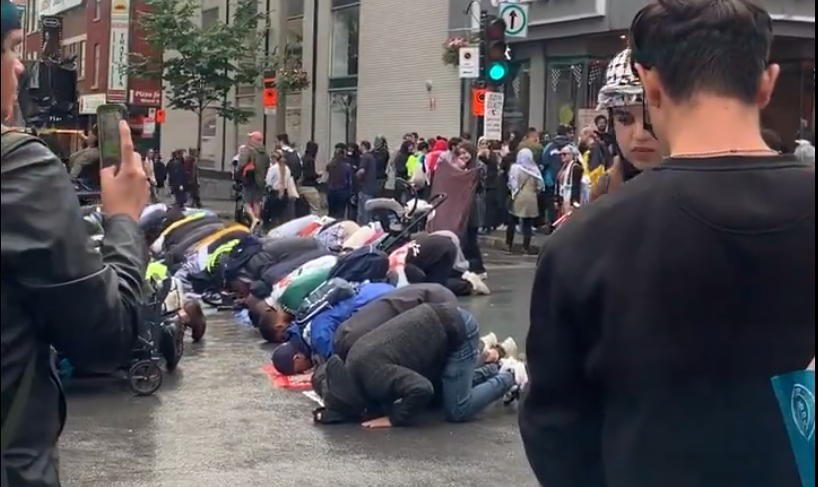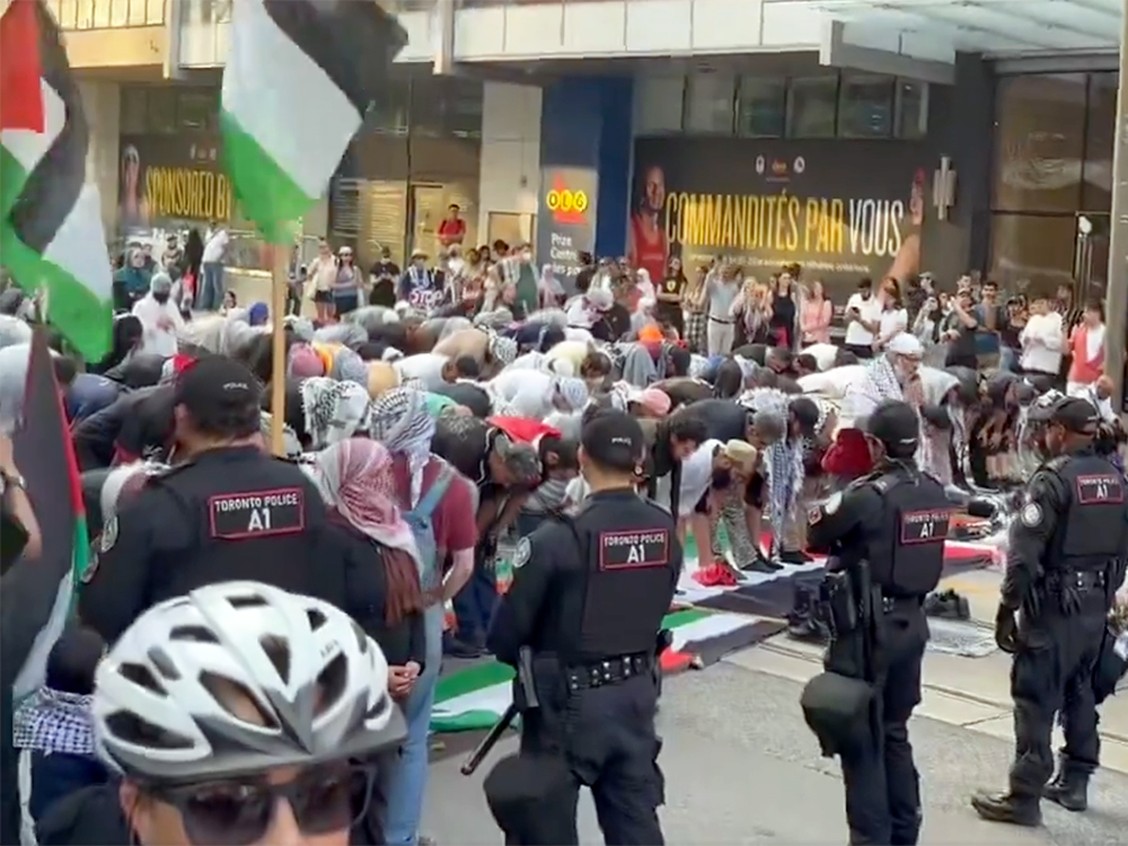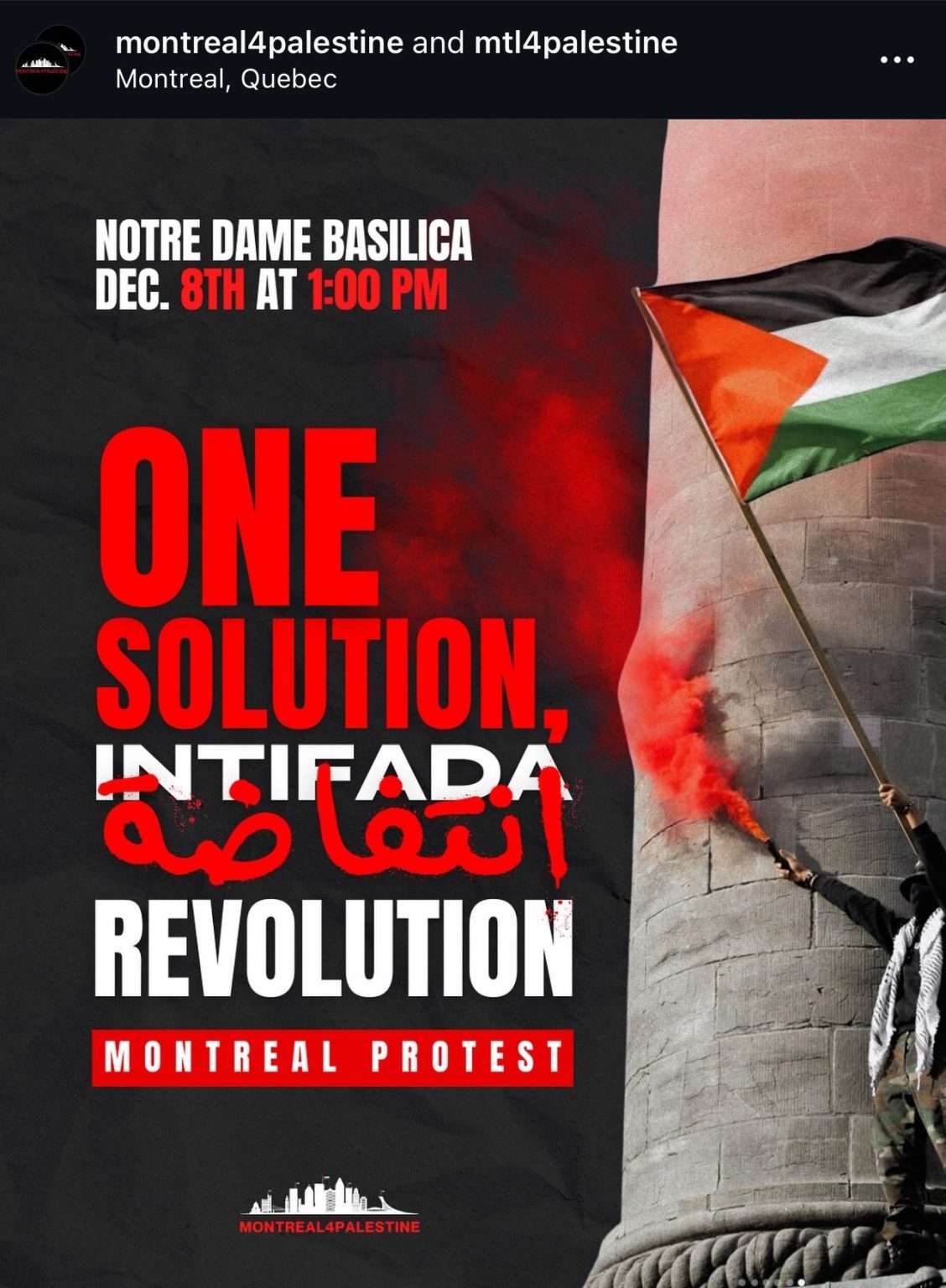Transcending 'The Right to Practise Their Religion"
"There are teachers who are bringing Islamist religious concepts into Quebec schools. I will definitely not tolerate that. We don't want that in Quebec.""Seeing people on their knees in the streets, praying, I think we have to ask ourselves the question.""I don't think it's something we should see. [We are considering whether to legislate on the issue].""When we want to pray, we go to a church, to a mosque, but not to public places."Quebec Premier Francois Legault"[Quebec Premier François Legault] keeps picking on Muslims. I don't know what Legault is picking on. It seems to me that it's always Muslims.""People have the right to pray in public, whether you're Jewish, whether you're on a pilgrimage to Saint-Joseph's oratory as you see (...) especially in summer, people climbing the stairs on their knees, Christians. Would that be banned?""Basically, I believe that the rights of any Quebecer are the same under the Canadian Charter as those of any Canadian. That includes the right to practise their religion."Canada's federal Minister of Immigration, Marc Miller
 |
| Screenshot from a viral video taken in 2024 of Muslim men praying in the middle of a blocked street in Montreal. |
The
response to Premier Legault's position on the episodic gathering of
Muslims in Quebec in organized mass prayers, shutting down streets in
the process, or in parks perturbing observers in displays of overt
Muslim prayer ritual, of a kind generally considered private and
personal, demonstrating in public that among its population there are
those who claim respect for their religion, but yet deny that same
respect for other citizens for whom the display is offensive, lost no
time in coming.
According
to Martin Laliberte, president of the Assembly of Catholic bishops of
Quebec, a ban on public prayer would have the effect of targeting
minority religious groups perceived by some as threatening to Quebec's
identity, running counter to the goal of peaceful co-existence. Premier
Legault's "very clear message to Islamists" evidently does not sit well with Quebec's Catholic bishops, who guide their flocks among the laity.
Lost
in the protests in support of allowing masses of Muslims to block
streets and produce unappreciated public displays in parks is that this
type of behaviour is exclusive to Muslims; neither Christians nor Jews
have a habit of asserting their religious devotion in such ostentatious
displays of public devotion. The displays go well beyond adherence to
religion; they become public political devices, statements that reject
social conduct in Western societies. Minister Miller's petulant remarks
are disingenuous, but predictable for the Trudeau Liberal government
which covets the Muslim vote.
 |
The
Quebec premier stated his concern over recent reports of teachers
allowing prayers in classrooms and preventing girls from playing sports,
as "totally unacceptable". He has no wish to see, he stated unequivocally, people praying "in public parks or public streets". His government is "looking at all possibilities, including the use of the notwithstanding clause",
allowing governments to override sections of the Charter of Rights and
Freedoms, in respect to the constitutionality of banning public prayer.
According
to Mr. Laliberte of the Assembly of Catholic bishops of Quebec, a ban
would be unenforceable. He raised the issue of other activities
containing a spiritual element; yoga classes in a park, as an example.
Religious groups on occasion organize public gatherings for food drives
and other such charitable purposes when a prayer might be recited, he
pointed out. The Way of the Cross procession led by the Catholic
archbishop of Montreal on Good Friday.
Hardly
comparable to the deliberate mass prayers orchestrated by Muslim groups
to assert their special status of entitlements by displaying public
spectacles while interrupting the flow of traffic, be it vehicles or
pedestrians; a religious device that is an illustration of a political
statement of exceptionality and overt defiance of public order.
"[Activities blocking traffic are subject to the Highway Safety Code]. We have the power to ask them to stop, to move, to free up the road. If they persist, we have the right to arrest them.""[The union was among the first organizations to support Bill 21, Quebec’s secularism law, noting street prayer] doesn’t have its place in Montreal; it doesn’t have its place in Quebec."Montreal Police Brotherhood president Yves Francoeur"Most people agree that if the Quebec government comes out with any legislation, it will be targeted towards the context that is most problematic [for example, street demonstrations and traffic blocking incidents.""We all know where this is coming from and the context. The target of this legislation is not the Jewish community. We know that we are collateral damage in this.""[When streets are blocked by protesters praying, it is being used as a political tool]. Everyone understands these impromptu prayer services are not done as pious acts of devotion. It’s an attempt to intimidate, to express a form of Islamist supremacism, and when you weaponize prayer, this is the consequence. The radicals have weaponized prayer to disrupt, to demonstrate power.""I can’t have a picnic in the street, but that doesn’t mean that the government is trying to starve me. I can go eat at home. And it’s not an infringement on someone’s freedom of expression or freedom of religion not to be allowed to pray in the street.” Banning this activity from public streets is not an act of discrimination or anti–freedom of expression. It’s pro-traffic."Rabbi Reuben Poupko, Beth Israel Beth Aaron Congregation, Montreal
 |
Labels: Quebec Premier Francois Legault, Response to Mass Muslim Public Prayer

<< Home